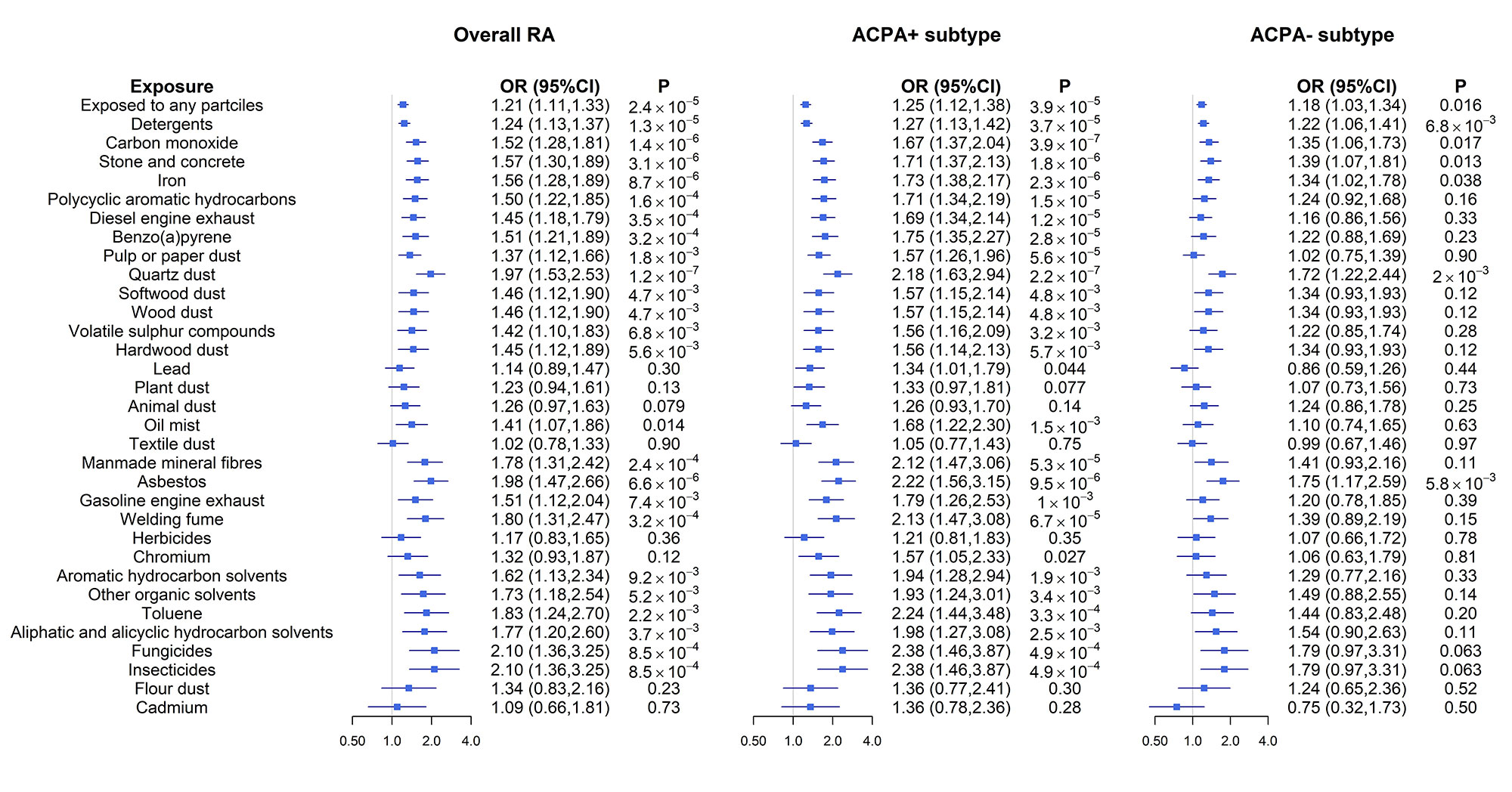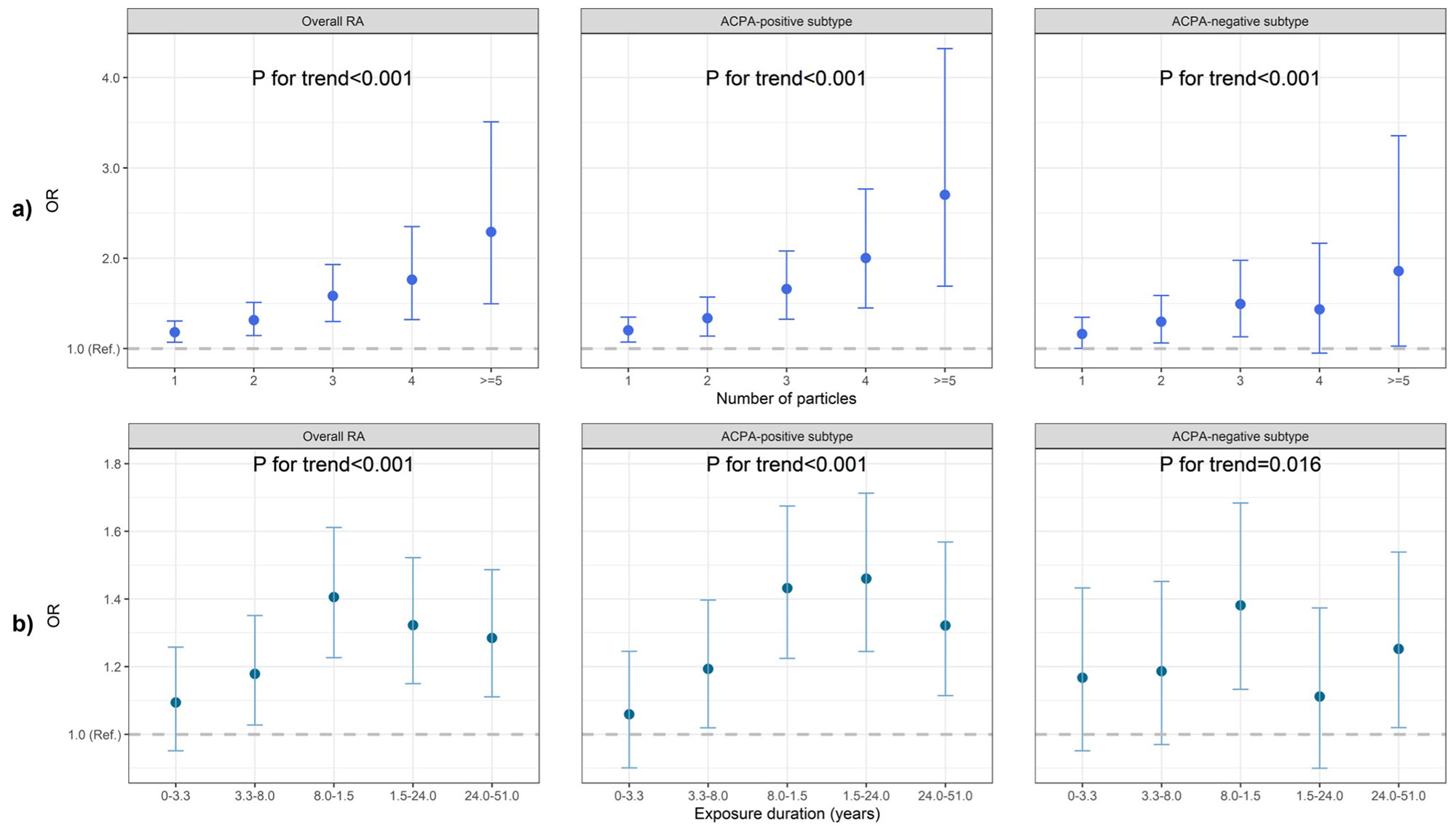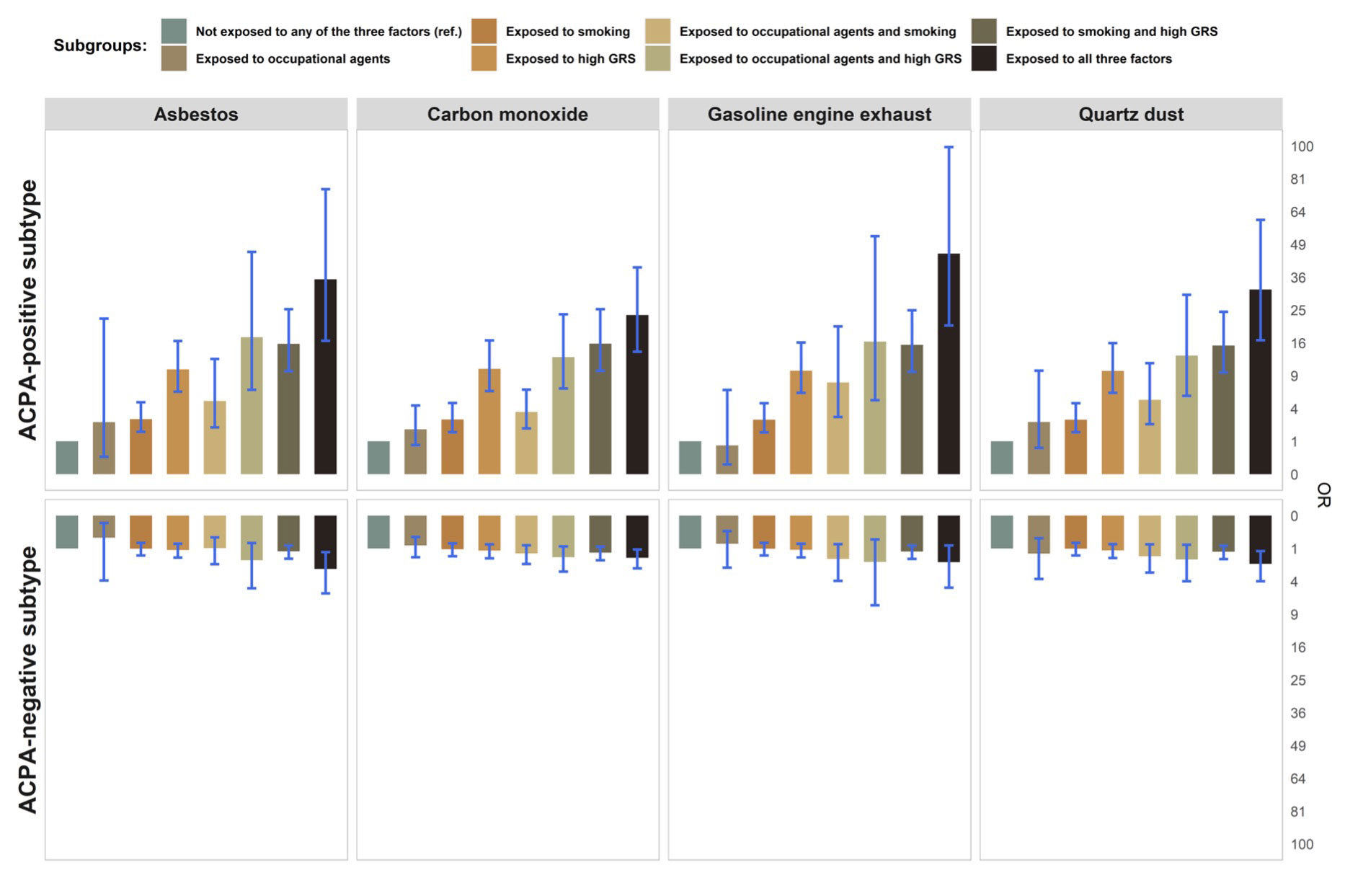Session Information
Session Type: Poster Session B
Session Time: 9:00AM-10:30AM
Background/Purpose: The lung is recognized as a primary site in the induction of rheumatoid arthritis (RA). Our study aims to assess the effect of common occupational inhalable exposures on RA development and their interactions with smoking and RA-risk genes.
Methods: From 1996 to 2017, 4,033 incident RA cases and 6,485 controls matched on age, sex, and residential area were recruited from central and southern Sweden, all answering a self-administered questionnaire. For each participant, occupational history was retrieved, which together with information from a Swedish national job-exposure matrix allowed us to estimate the cumulative exposure to 32 different inhalable agents, taking prevalence and concentration into account. Approximately 3,400 cases and 2,800 controls had concomitant genetic data (genome-wide genotypes and human leucocyte antigen class II shared epitope (HLA-SE) genotypes). Two subtypes of RA were assessed based on the status of anti-citrullinated protein / peptide antibodies (ACPA), consisting of 2,642 ACPA-positive cases and 1,391 ACPA-negative cases.
Results: An increased risk of developing ACPA-positive RA was found for individuals ever exposed to any occupational inhalable agents (OR=1.25, 95%CI=1.12-1.38). The risk increased in a dose-response manner according to number of agents (Ptrend< 0.001) and duration of exposure (Ptrend< 0.001). When jointly considering occupational inhalable agents, smoking, and genetic risk score (GRS), a markedly elevated risk of developing ACPA-positive RA was observed among participants who were exposed to all three factors compared with those not exposed to any (OR=18.22, 95%CI=11.77-28.19). A significant interaction on the additive scale was found between occupational inhalable agents (ever exposed to any) and smoking for overall RA (attributable proportion due to interaction (AP)=0.19, 95%CI=0.08-0.31). A gene-environment interaction (with GRS or HLA-SE) was observed for a number of specific inhalable agents restricting to ACPA-positive RA, including quartz (GRS: AP=0.36, 95%CI=0.08-0.63; HLA-SE: AP=0.42, 95%CI=0.15-0.68), asbestos (GRS: AP=0.44, 95%CI=0.13-0.74; HLA-SE: AP=0.41, 95%CI=0.08-0.75), carbon monoxide (GRS: AP=0.23, 95%CI=0.01-0.45; HLA-SE: AP=0.29, 95%CI=0.07-0.51), fungicides (GRS: AP=0.56, 95%CI=0.19-0.93) and gasoline engine exhaust (GRS: AP=0.52, 95%CI=0.23-0.80; HLA-SE: AP=0.48, 95%CI=0.16-0.79). On the contrary, no indication of interaction was found in ACPA-negative subtype.
Conclusion: Occupational inhalable agents could act as important environmental triggers in RA development and interact with smoking and RA-risk genes leading to an excessive disease risk. These effects are specific to ACPA-positive RA. Preventive strategies aimed at reducing occupational hazards and smoking are warranted for reduction of the burden of RA, especially for those who are genetically vulnerable.
To cite this abstract in AMA style:
Tang B, Liu Q, Ilar A, Wiebert P, Hägg S, Padyukov L, Klareskog L, Alfredsson L, Jiang X. Occupational Inhaled Agents Constitute Major Risk Factors for Rheumatoid Arthritis, Particularly in the Context of Genetic Predisposition and Smoking [abstract]. Arthritis Rheumatol. 2022; 74 (suppl 9). https://acrabstracts.org/abstract/occupational-inhaled-agents-constitute-major-risk-factors-for-rheumatoid-arthritis-particularly-in-the-context-of-genetic-predisposition-and-smoking/. Accessed .« Back to ACR Convergence 2022
ACR Meeting Abstracts - https://acrabstracts.org/abstract/occupational-inhaled-agents-constitute-major-risk-factors-for-rheumatoid-arthritis-particularly-in-the-context-of-genetic-predisposition-and-smoking/



